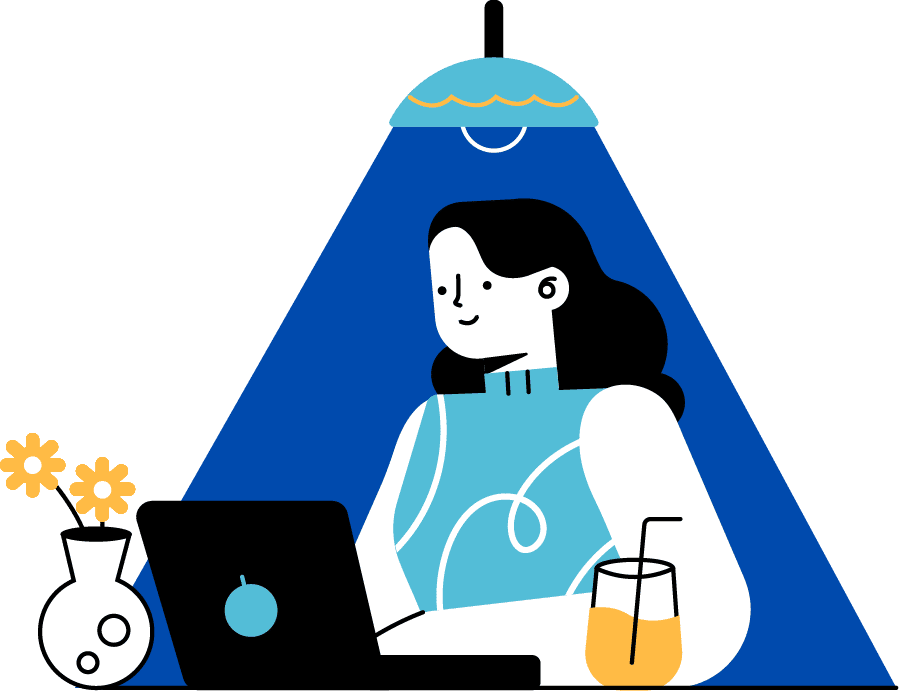Many people are living through pain, suffering, and trauma that no one can see and try to hide, ignore, or wish away. Unfortunately, it eventually comes to light and affects our mental and physical health, typically in the form of changed or unusual behavioral patterns, physical illness, and difficulty going about daily life.
The potential benefits that therapists offer are invaluable. In therapy, you will gain problem-solving skills, and learn ways to cope and overcome feelings and emotions, all while learning to talk openly and honestly about the challenges you are facing.
This post contains 10 of the many indicators that you are suffering from a mental health condition, and it may be time to seek support and see a therapist.
1. Social withdrawal
Most commonly linked to depression, avoiding social events, family members, and work gatherings are some of the most common signs of depression and anxiety.
Depression is often treated with cognitive behavioral therapy, or CBT, in which a therapist helps discover unhealthy patterns of thought and behavior and how they affect your mood, the beliefs you have about yourself, and your outlook on life.
Social anxiety and a large range of other mental health conditions are often treated through psychotherapy and CBT by mental health professionals. You will learn to recognize and change negative thoughts about yourself and develop coping skills to help you gain confidence and self-awareness in social situations.
2. Losing interest in passions and hobbies
If you lose interest in activities that you previously enjoyed, this can be a key indicator of depression. Known as Anhedonia, it can also materialize as a loss of pleasure.
Major depressive disorder can be diagnosed by a clinical psychologist, therapist, or psychiatrist and is often treated with cognitive and behavioral therapy or a combination of both.
3. Experiencing a traumatic event
A traumatic event can be the loss of a family member or loved one, witnessing a crime, natural disaster, death, or any other terrifying situation. This can lead to post-traumatic stress disorder (or PTSD). Traumatic events signal the emotional side of the brain and can disconnect with the part of the brain that promotes reasoning.
PTSD can be treated with two types of psychotherapies (known as talk therapy), including cognitive therapy and exposure therapy.
Cognitive therapy can help to redirect thought patterns and to understand how they are holding you back from recovering from trauma. Exposure therapy involves facing fears and triggers that may have materialized when they experienced trauma, but in a safe environment (like a virtual reality setting with a therapist).
4. Eating disorders
Eating disorders are commonly linked to depression and anxiety, but can also form from low self-esteem, stress, and fear of sexual failure.
Treatment for eating disorders such as bulimia, anorexia, binge eating, and restrictive food intake varies depending on the individual.
Most who seek treatment receive professional help from a mental health professional who implements modalities like cognitive behavioral therapy in a group setting and family therapy. This form of therapy can help parents with teens who are struggling, partners supporting each other, and other close family dynamics.
5. Difficulty regulating emotions
Difficulty regulating emotions is often associated with emotional dysregulation and depression. When you feel emotions so intensely that you struggle to control your reactions, responses, and mood swings, it’s easy to feel like you are spiraling out of control.
This mental health condition can be treated through dialectical behavioral therapy, which teaches individuals to develop healthy ways to cope with stress and how to improve their interpersonal relationships. Dialectical behavioral therapy also helps people to change unhelpful behaviors that cause distress.
Additionally, emotional regulation therapy (ERT) uses components of cognitive, acceptance, and mindfulness-based approaches to therapy. Individuals learn how to control their emotional responses in stressful situations so they can reduce interpersonal animosity, view their relationships clearly, and improve their quality of life.
6. Sleep trouble
Tossing and turning, worrying about work, or struggling to fall asleep is a fairly normal part of life. However, when it is a regular occurrence, is when it becomes a mental health concern. Rather than turning to sleep aids or other medications, the right therapist can help determine the root causes of a sleep issue to improve your sleep and overall well-being.
Sleep problems are fairly common in patients with anxiety, depression, bipolar disorder, and ADHD. Cognitive behavioral therapy is often used for patients that struggle with getting enough rest, as it teaches certain lifestyle changes to make and relaxation techniques to use before bed.
If you’ve been diagnosed with one of the mental health issues listed above and begin to seek treatment, you will likely see an improvement in your sleep patterns over time.
7. No motivation or lack of focus
Mental illness can drastically affect motivation and focus; struggling to find the motivation to work a full day, or even get out of bed in the morning, and accomplish tasks in your daily life. Taking care of yourself becomes seemingly impossible, and getting the kids to school every day is a huge hurdle.
Lack of motivation is a common symptom of depression, anxiety, bipolar disorder, and schizophrenia. It can be a severe side effect because, from the outside, you may appear lazy or disinterested to those who don’t understand the severity of the disease.
Cognitive behavioral therapy can be effective at treating low motivation in depression. This type of therapy involves changing thinking and behavioral patterns that keep you stuck in the rut of having no motivation or energy.
8. Substance use and addiction
Mental illness and substance abuse are often linked. Substance abuse is a way for those suffering from mental illness to self-medicate and ease the symptoms of the illness. Although the direct correlation between substance abuse and mental health isn’t always known, research has shown that for those at higher genetic or environmental risk of mental illness, abusing drugs or alcohol may set off a mental health crisis or even trigger underlying psychological disorders.
Therapy can help with drug or alcohol abuse. Substance use is treated with a combination of therapies, one of which is dialectical behavioral therapy. This type of therapy focuses on validating and accepting uncomfortable feelings rather than working around them or trying to avoid them.
9. Having frequent intrusive thoughts
Intrusive thoughts can be triggered by stress or anxiety, and they are often associated with a mental disorder known as obsessive-compulsive disorder. An OCD diagnosis is likely when those thoughts become so bothersome that they prompt repetitive behaviors or compulsions to try to prevent them from occurring.
The therapy methods often used with obsessive-compulsive disorder are known as exposure and response prevention (ERP), a form of cognitive behavioral therapy. This treatment involves facing fears or triggers that make you take action to relieve the stress related to the fear. A therapist can help you process these thoughts by allowing gradual exposure to the underlying fear. As your negative response becomes gradually less severe, your brain begins to realize nothing bad occurs when you don’t perform the compulsions.
10. Feeling lethargic and hopeless
Lethargy and hopelessness can be the side effects of a severely depressed person.
Like all symptoms, these must last at least two weeks and represent a change in your previous level of functioning for a diagnosis of depression.
Depression is often treated with psychotherapy, or talk therapy. If the depression is mild, psychotherapy may be the sole form of therapy. In moderate to severe cases, psychotherapy is paired with medication like antidepressants.
In some cases, significant improvements occur in 10 to 15 sessions. For more severe cases, particularly ones that involve medication, most therapists recommend intensive outpatient treatment to experience the potential benefits of psychotherapy and medication together.
Find the Best Treatment Plan With Clear Behavioral Health
If you consistently feel sad or are dealing with any of these indicators, a trained therapist or mental health professional can help. Whether you are overwhelmed by normal life challenges or faced with a mental health crisis, speaking to a trained professional at Clear Behavioral Health will help get you back on your feet. Life presents many challenges and being able to engage in individual and group therapy about your mental health issues may be the support that you need to repair relationships, start a new job, or make it through a major change in your life.
At Clear Behavioral Health, we take an individualized approach. Your therapist will focus on the everyday stressors that you face. We devise a unique treatment plan that incorporates evidence-based therapies and holistic approaches to treatment.
Our virtual mental health programs offer a judgment-free space where individuals can receive the emotional support they need as they develop new skills to build healthy relationships and improve their quality of life. Call today at 866.680.0969 or contact us online to learn more.






